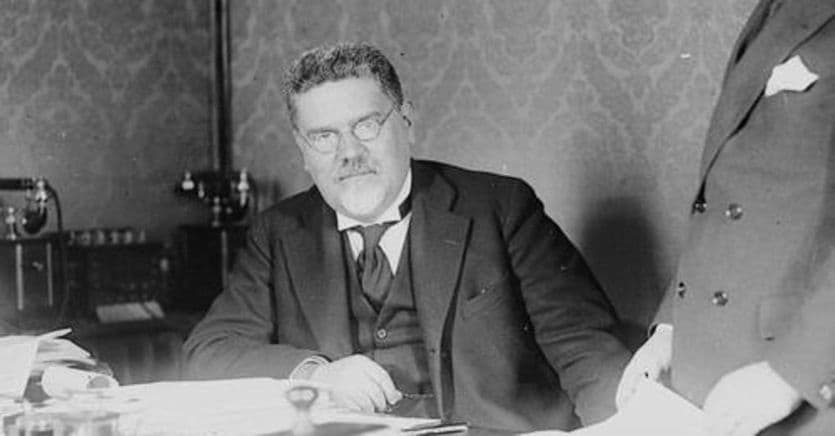“We will never be able to be, for example, mathematicians, however much we memorize all the proofs of others, if we do not also have intelligence capable of solving any problem; or philosophers, if we have read all the arguments of Plato and Aristotle, but without being able to make a sure judgment about the arguments proposed; thus, in reality, we would show that we have learned not the sciences, but history” (Descartes, Rules for the guidance of intelligence, 1628). For about a century, Italian high schools have taught the history of philosophy and not philosophy.
Gentile reform
In 1923 the Gentile reform, as is well known, introduced a historical path, of Hegelian origin. However, his project envisaged the reading and in-depth study of a few texts by great authors, therefore a demanding, strongly argumentative philosophical apprenticeship. After a few years this system, too difficult, was abandoned and we moved on to the “manuals”: the history of philosophy was summarized in a roundup of authors, from the pre-Socratics to the present day, studied one after the other in chronological order. Studied so to speak: you no longer get to the heart of an argument, and you proceed by “formulas”. Thus Thales is the one of water, Socrates the one of “I know I don’t know”, Plato the one of ideas, Descartes the one of “cogito”, Kant that of “I think” (which is the same thing after all), Fichte the incomprehensible “I who poses the non-I” and Hegel the ineffable and grave “thesis-antithesis-synthesis”.
An experiment can be done: take former high school students of different generations and verify that everyone still repeats the same formulas, however far back in time. You will always find, for example, Leibniz with his “monads”, which are also completely incomprehensible. Today, the difference compared to, I don’t know, forty years ago, is that we read a few more texts (but not so much) and that the manuals are hypertrophic, indigestible and in fact used only minimally. If we add that in Italy the “canon” includes some authors (I quote at random: Bruno, Vico, Croce) placed there for reasons of national identity, it is clear that everything becomes only a long journey between the most extravagant “opinions”.
This picture is cruelly illuminated by Massimo Mugnai’s book, How not to teachare la filosofia. Mugnai starts from a direct experience of what students learn in high school: the admission tests to the Scuola Normale Superiore of Pisa, which he corrected for fifteen years. The result, if we consider that we are dealing with the most motivated and prepared students, is bleak: usually, they do not know how to argue or reconstruct a philosophical argument; have read very few texts or none; they repeat the formulas from the manuals by heart; they cannot deal with a philosophical problem as such, but can only talk about it by “contextualizing” it in the epoch and in the rest of an author’s work, that is, again repeating formulas learned by heart. Philosophy, for the most part, is a smattering of “what philosophers have said” over time: it serves to know that they exist, to exhibit a culture. Obviously, philosophy is an open field, there are many ways of thinking about it and practice it. But if we want to teach it in school (which is not necessary, as the experience of other countries shows) we must have a minimum shared idea of it. Mugnai proposes a clear and acceptable definition: philosophy makes explicit the fundamental concepts of our experience, those which operate implicitly in our actions and thoughts; it therefore serves to clarify them, and correct them if necessary. Furthermore, philosophy also knows forms of “progress” of knowledge, in circumscribed and specific fields (for example in logic, or philosophy of language; or even in moral philosophy, in a certain sense). These theses scandalize the “philosophical common sense” produced by our high school education and by a certain pervasive historicism in Italy, according to which philosophy is inevitably, from top to bottom, the daughter of an era, and therefore “there is no truth ” in philosophy. But if this were true, we wouldn’t need to study it except as a history of culture: we wouldn’t need to deal with the texts of past authors. Who instead speak to us, and with whom we discuss.

An “absolute truth”
This does not mean that there is an “absolute truth” (a bogeyman that no philosopher believes in), but that there are good and bad arguments, and that doing philosophy means arguing, not repeating theories that are “all the same”. If they are all the same, i.e. not true, it is useless to study them, it is better to do something else. The two central chapters of the book proceed with a careful analysis of the ministerial documents and above all of some manuals in use today in schools, compared with those of other European countries (Great Britain, France, Austria, Germany, Spain, Portugal). It would be of little use to summarize them here, instead it is very edifying to read them directly, one can see the thousand ways of the disbanding of philosophy induced by an obtuse bureaucracy and the book market. If we had not only the teaching of philosophy at heart, but philosophy itself, we would do everything to eliminate these derailments caused by two social systems (State and market) out of control.
